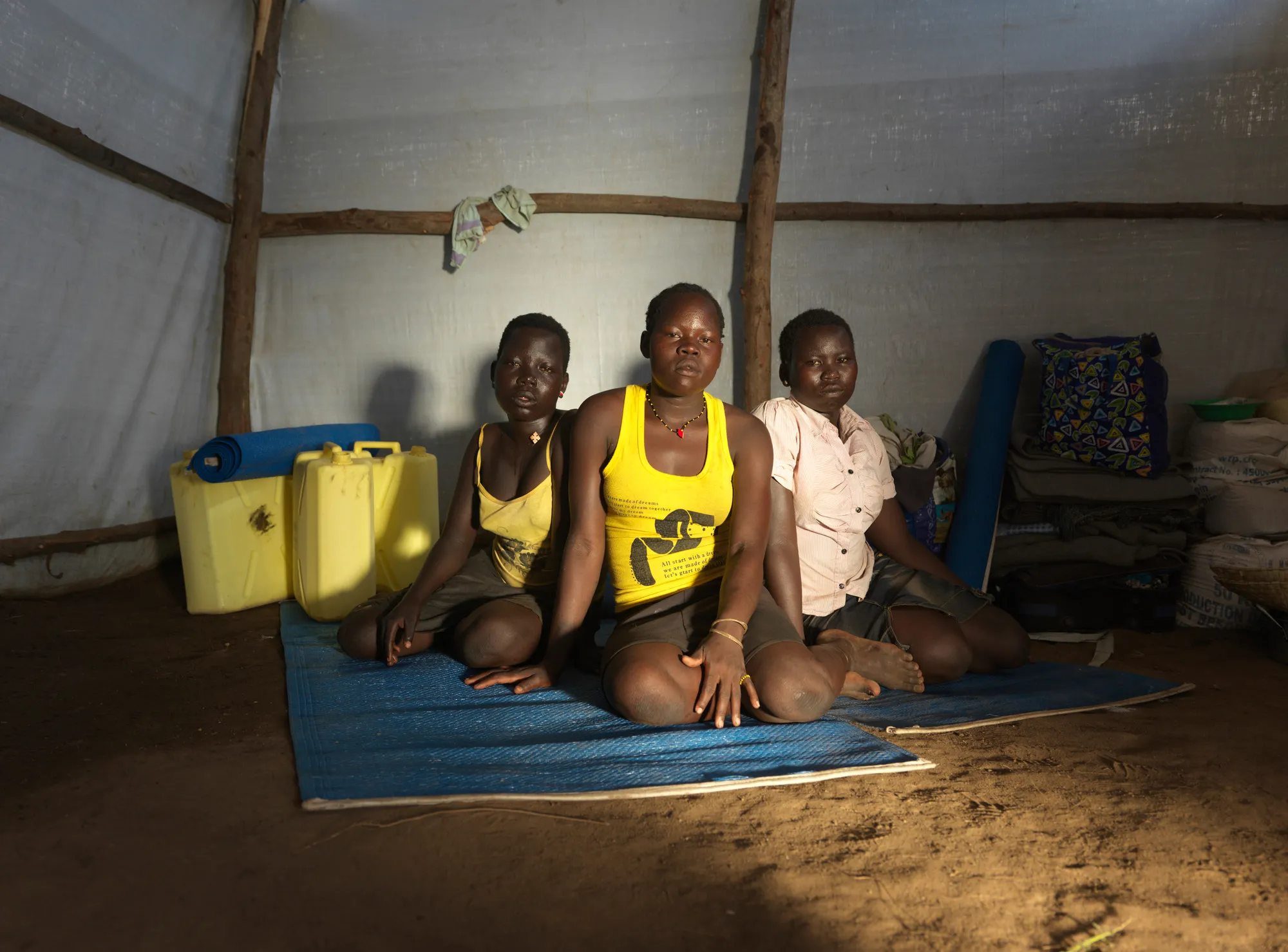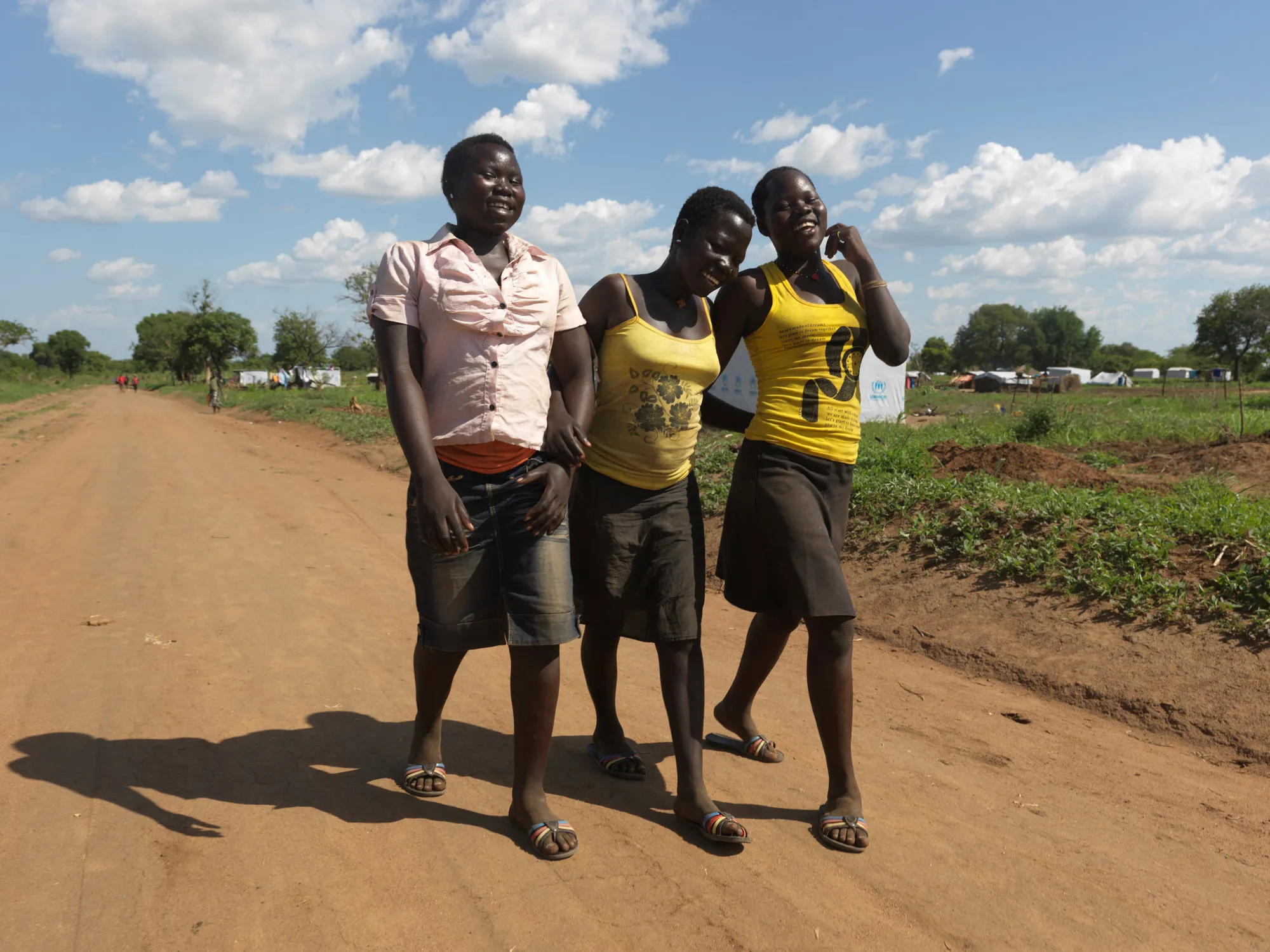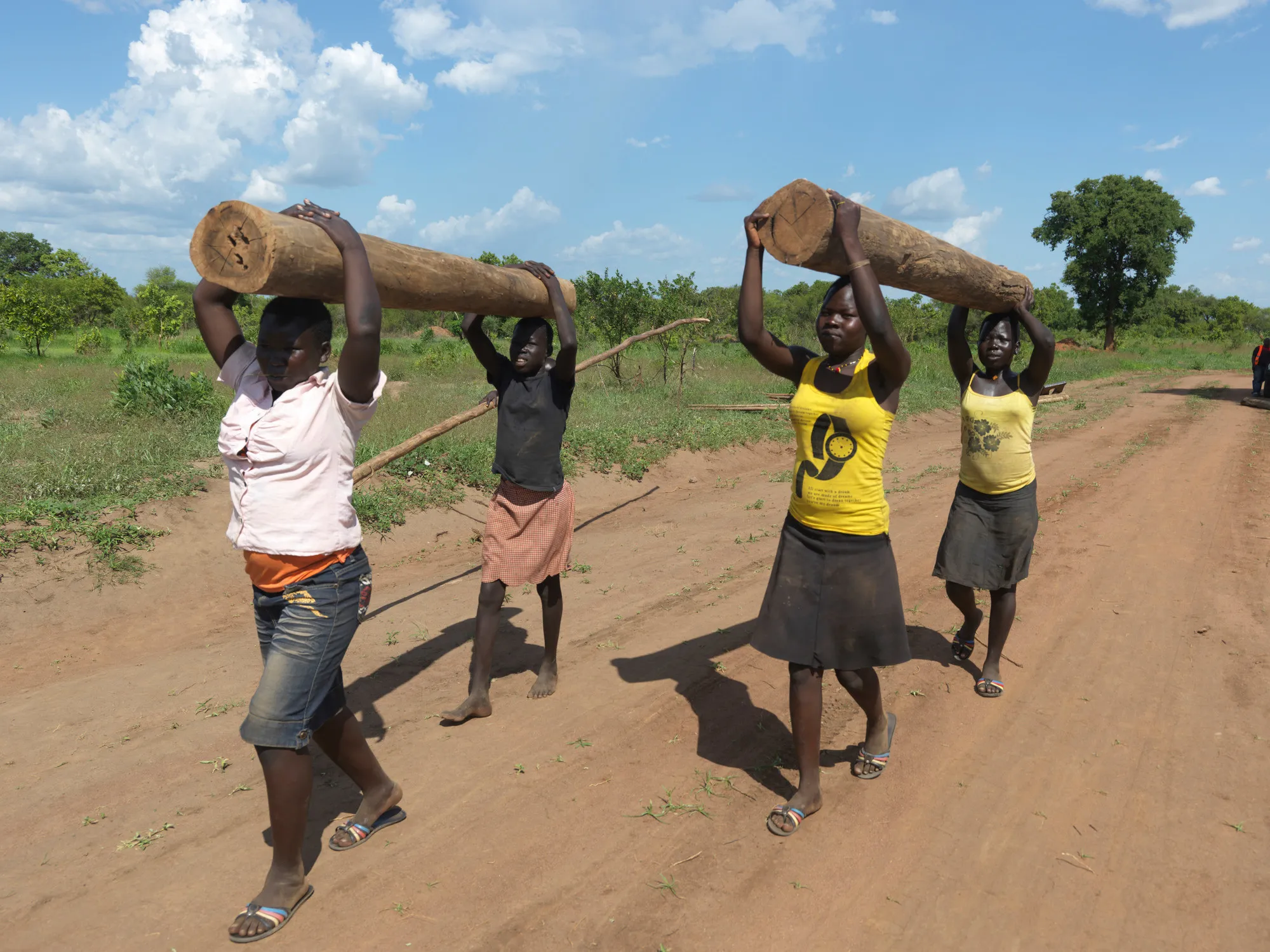In the heat of the day, Lillian, Scobia and Viola help each other carry large, heavy pieces of wood from a collection point to the temporary shelter they are trying to make into a home at Imvepi refugee settlement in Uganda. They’ve been sharing a latrine with neighbors with no place to shower, so today, they are building their own bathroom on their land. The girls, now 17 years old, are from the same village in South Sudan. Most of the fledgling nation is in the grip of a humanitarian crisis fueled by years of chronic underdevelopment, conflict and natural disasters. The three girls fled to Uganda last year with Viola’s eight-year-old brother, but no adult guardian.
Viola and her brother were raised by their uncle until he was killed by soldiers on his way home one day. They survived for a few months off of the vegetables in their garden. When they ran out of food, they moved in with Scobia and her grandmother, who were neighbors. Lillian was living with her older sister, after their parents had died. But when her sister got married, she left with her husband, leaving Lillian alone. She also moved in with Scobia.
As the violence in South Sudan worsened, their school stopped operating and the girls became increasingly worried about their safety.
“I was afraid that if I stayed in South Sudan, we would get killed just like my uncle,” Viola says. “I wanted to come to Uganda to be safe and get an education, so I can one day get a job and continue taking care of my brother.”
Scobia’s grandmother helped the girls pack food and their belongings, and they set off for Uganda on foot. During the journey, they rationed their supplies, not knowing how long they’d need the food to last. They arrived in Uganda after walking for seven days.



